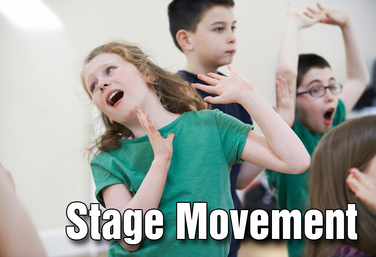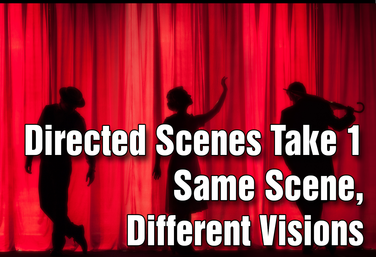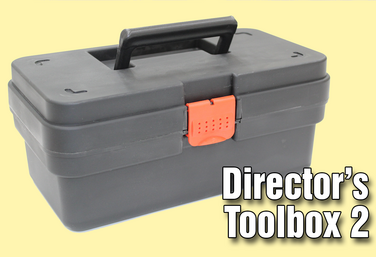View all Standards for Florida Sunshine State Standards
TH.912.S.3.8 Direct a scene or one-act play.

UNIT
Part of the Drama One Curriculum
What is Theatre?
by Karen Loftus
Students will explore the question “What is theatre?” and contrast theatre to film. They will also begin their introduction to a couple of theatre roles.
Read More
about What is Theatre?
Read Less
about What is Theatre?

UNIT
Part of the Drama One Curriculum
Stage Movement
by Karen Loftus
Students will get “onstage.” They will explore what is important for onstage action, the basics of stage directions, and how to keep open. This unit will culminate with students trying out what they’ve learned in a short scene.
This unit is more about the technicalities of moving on stage. By giving students something concrete to focus on, it allows them to overcome any stage fright.
Ensemble-building exercises are also included in this unit. If you have time at the end of a lesson after you’ve completed your instruction and are wondering what to do, you can never go wrong with an ensemble-building exercise!
Read More
about Stage Movement
Read Less
about Stage Movement

UNIT
Part of the Middle School Curriculum
Unit Six: Directed Scenes Take 1: Same Scene, Different Visions
by Lindsay Johnson
Students will now start applying the skills they’ve learned thus far in the context of existing, fleshed-out scripts.
They will also have opportunities to shift from actor to director and hone such skills as collaboration, self-confidence, and problem-solving which can be used in many other areas of their lives.
Read More
about Unit Six: Directed Scenes Take 1: Same Scene, Different Visions
Read Less
about Unit Six: Directed Scenes Take 1: Same Scene, Different Visions

UNIT
Part of the Middle School Curriculum
Unit Seven: Directed Scenes Take 2: A Variety of Scenes
by Lindsay Johnson
Students will have another opportunity to participate in student-directed scenes, only this time each director will be assigned a different script, and actors for each group will be chosen by the teacher based on individual strengths and challenges, rather than holding auditions.
Actors will take a deeper dive into character physicality and use of levels in staging this unit. Directors will continue to create a set design and block the scenes, adding props as well in this unit.
The unit culminates in actors presenting their directed scenes to the class.
Read More
about Unit Seven: Directed Scenes Take 2: A Variety of Scenes
Read Less
about Unit Seven: Directed Scenes Take 2: A Variety of Scenes

UNIT
Part of the Distance Learning Curriculum
What is Theatre?
by Lindsay Price and Karen Loftus
Students will establish a definition of theatre, know the difference between theatre and film, and start to explore who’s who in the theatre.
Read More
about What is Theatre?
Read Less
about What is Theatre?

PD COURSE
Director's Toolbox 2: Teaching Students to Direct
by James Van Leishout
Director’s Toolbox 2: Teaching Students to Direct, explores the tools of the actor, rehearsal, space, and design.
The tool of the actor will focus on creating a safe place to play, auditions, and how to communicate with actors.
Rehearsals will look at the whole process from the first meeting to opening night.
The tool of space will explore how to direct in different spaces and how to create focus through stage composition.
Discover how an understanding of the elements of design help student-directors communicate with designers. The final step is a return to self and the mastery of self evaluation.
Read More
about Director's Toolbox 2: Teaching Students to Direct
Read Less
about Director's Toolbox 2: Teaching Students to Direct
View all Standards for Florida Sunshine State Standards Standards Master List